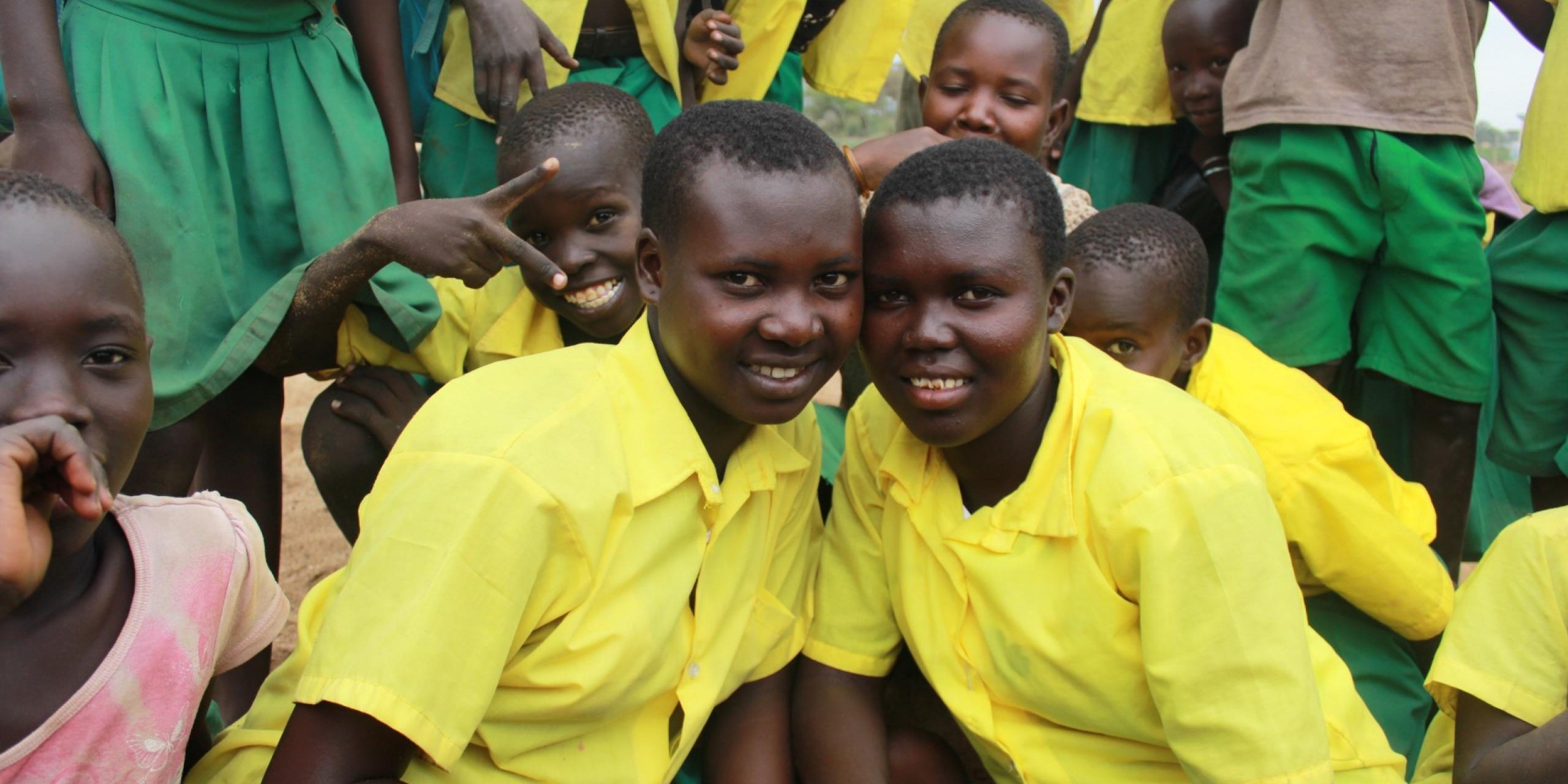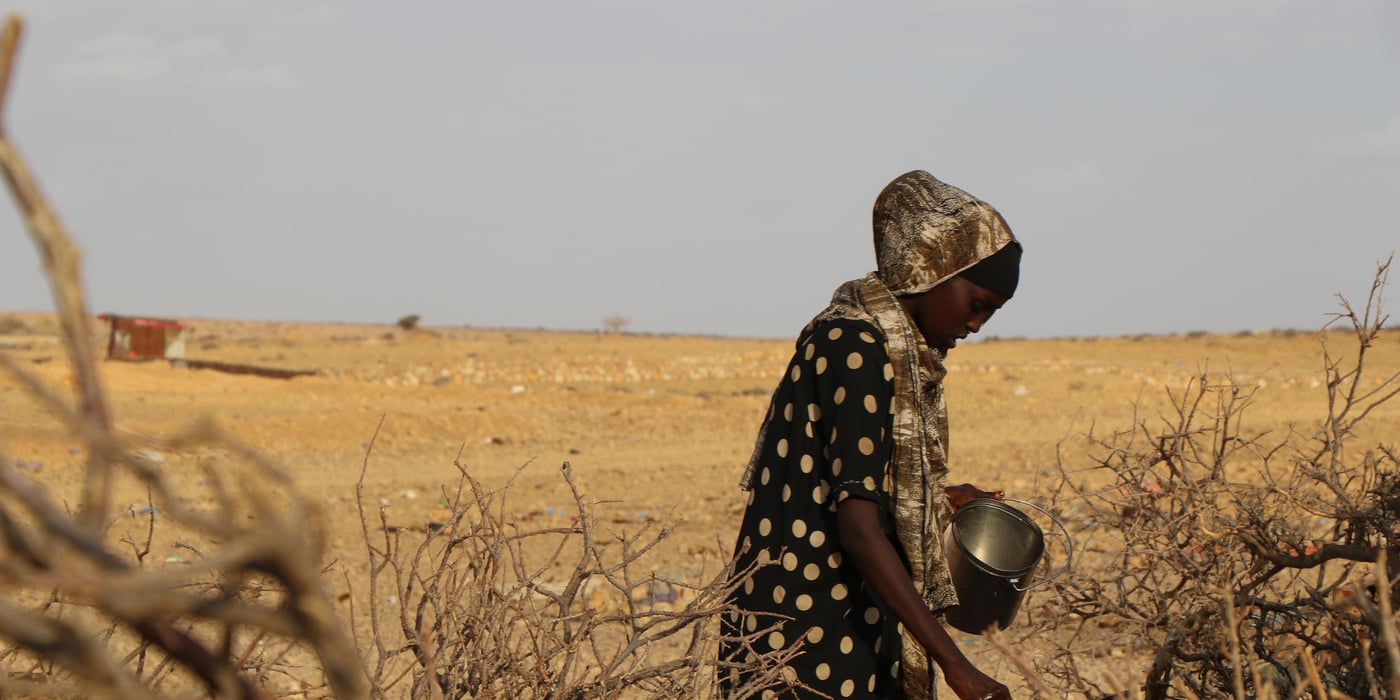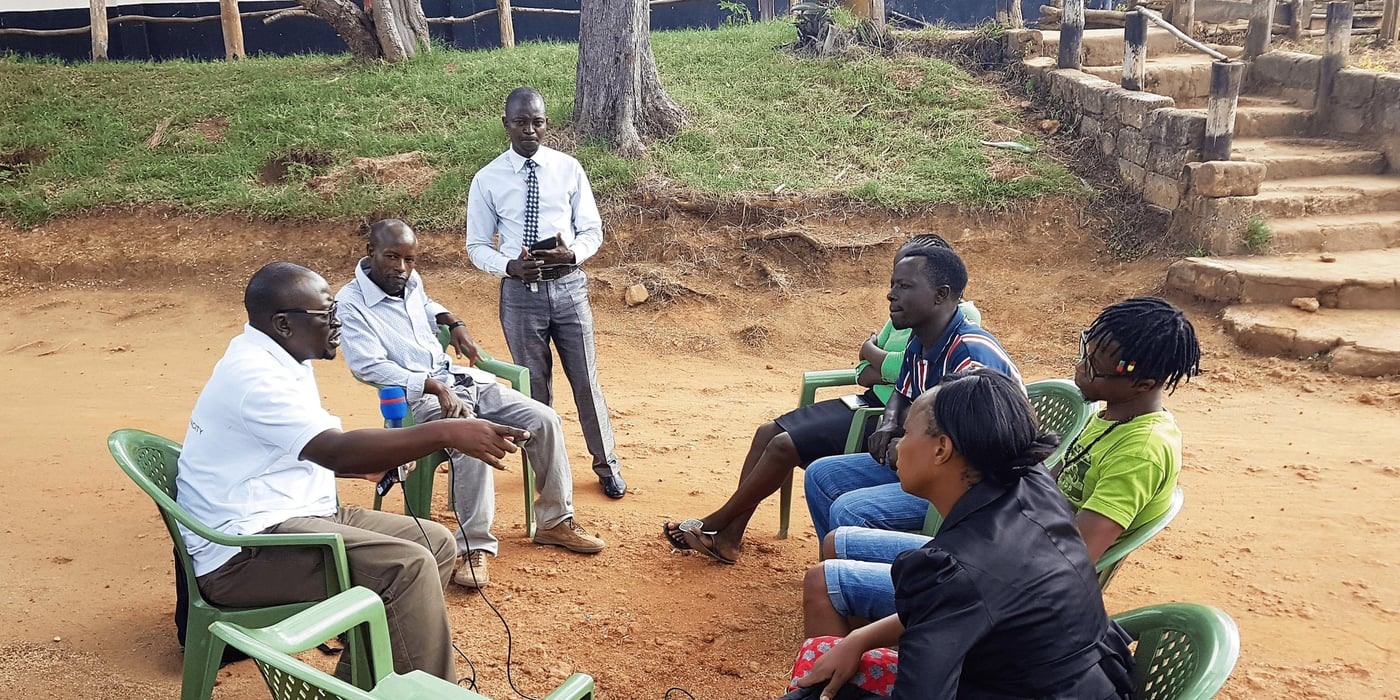
All children have a right to education, and children who have been forced to flee their homes are no exception. Providing education opportunities for crisis-affected children entails more than helping them develop academic skills. It protects them through a safe learning environment, improves their nutrition through meals at school, and gives young people hope for a better future.
But it’s not just refugee children who can experience learning disruptions. Displacement camps can sometimes affect local communities as well. In north-western Kenya’s Kakuma refugee camp – one of the largest in the world – the Norwegian Refugee Council (NRC) is addressing learning gaps through an accelerated learning programme, where two academic years are compressed to one. NRC, in partnership with UNICEF, provides the pupils with school uniforms, books and other learning materials.
One of the primary school’s refugee students is thirteen-year-old Namuya, who has never been to school before. She has recently enrolled in Kamdei Primary School and has started her studies in Class Two. She has two brothers and a sister.
“I have never seen my father, he died during a cattle raid in South Sudan when I was young, she says. “My mother and my paternal uncle brought me up.”
Accelerated learning
Namuya is capitalising on her accelerated learning to achieve her dreams of becoming a teacher. She enjoys studying Kiswahili, the same subject she wants to teach in future. Every morning, she wakes up before sunrise to get to school by 8.00 in the morning.
The accelerated programme is a recognised, formal programme where pupils, both overage and out-of-school, can get a primary school certificate in a reduced number of years. Students can, for example, take three years to complete primary school instead of six.
Challenges of life as a pastoralist
As a part of a pastoralist family, Namuya’s schooling was already sporadic. Growing up, Namuya looked after the family livestock in the Lokangae and Lotikipi plains of Turkana county.
“We moved a lot with our livestock,” she says. “My elder brother, sister and I would stay away from home for close to two months at a time.”
Following the 2016 drought, Namuya’s family lost all their livestock. Her uncle, with the intention of replacing the losses, identified a wealthy old man in the neighbouring village who would marry Namuya and give the family livestock as dowry.
“I refused to get married to the old man,” she says. Luckily, her mother supported. Because her uncle was persisting, Namuya’s mother decided to move the family to Kakuma. “We walked for four days surviving only on water and wild fruits,” she says.
Once in Kakuma camp, Namuya did menial jobs to make ends meet. She managed to find work as a housekeeper for a month. Life was tough – the aid they received wasn’t always enough and the family sometimes struggled to find enough to eat. Going back to school didn’t seem to be an option.
Another opportunity
Attending the accelerated learning programme in Kakuma camp also had another unforeseen benefit for Namuya: a nutritious meal.
“One day, my mother attended a community meeting,” Namuya explains. “At the meeting it was mentioned that a new opportunity was available to help children to go back to school. Selected students would be served with lunch as well.”
The mention of free lunch was enticing to Namuya’s mother. She saw this as a good opportunity.
Namuya’s mother brought her to school, where she received a school uniform, a school bag and books. With a proper lunch each day, she’s able to concentrate better in the class room.
“I am very happy to be in school and would like to complete my education,” Namuya says with a smile.



